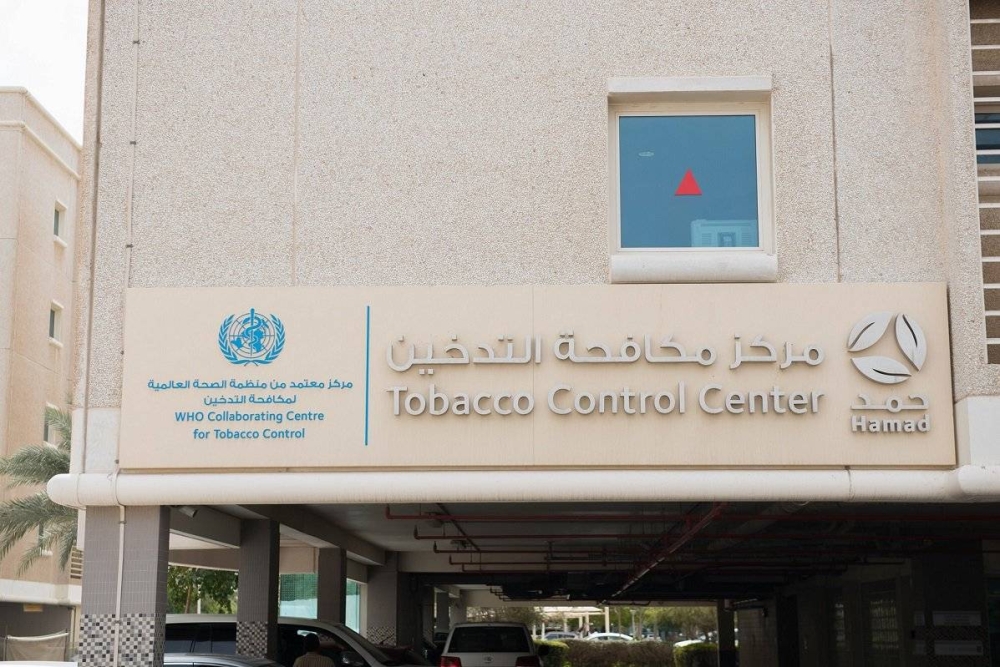Qatar joined the world to mark the 'World No Tobacco Day, observed annually on 31 May. The World Health Organization (WHO) designated this year's theme as: 'Protecting Children from Tobacco Industry Interference.'
The Ministry of Public Health (MoPH), Hamad Medical Corporation (HMC) and the Primary Health Care Corporation (PHCC), in collaboration with various relevant entities in the country, are making concerted efforts to combat smoking and protect the health and safety of its population. In recognition of this occasion, government health sector organisations have organized a series of awareness events and activities to educate the public about the dangers of tobacco use and to promote smoking cessation efforts.
Acting Manager of Health Promotion and Non-Communicable Diseases at MOPH Dr. Salah Abdullah Al Yafei, said "The ministry continues its efforts to reduce tobacco consumption in all forms in the State of Qatar, through the implementation of Law No. (10) of 2016 regarding the control of tobacco and its derivatives, in addition to implementing many extensive awareness initiatives and campaigns targeting the community."
He added that to celebrate the World No Tobacco Day, the Health Promotion Department conducted many awareness activities to highlight the dangers of smoking. This included delivering several awareness lectures government and private schools, as well as broadcasting awareness messages and films on the Ministry's social media accounts to raise awareness about the risks of using tobacco in its various forms.
For his part, Director of HMC's Tobacco Control Center, Dr. Ahmad Al Mulla highlighted that several locations within HMC were designated for awareness activities about the harms of tobacco. These included public awareness booths at Al Wakra Hospital on 27 May , Al Khor Hospital on 28 May, and the main entrance of Hamad General Hospital on 29 May. Dr. Al Mulla explained that these events primarily target youths and aim to warn them about the dangers of all forms of smoking, including new products such as e-cigarettes. He emphasized that combating smoking is a joint effort involving all state institutions and the community.
Dr. Ahmad Al Mulla revealed that the smoking rate in the State of Qatar currently stands at 25 percent of the total population. He added that 12.1 percent of those aged between 13 and 15 consume tobacco, and that more than 37 million young people worldwide smoke e-cigarettes.
Dr. Ahmad Al Mulla reiterated his call to quit this bad habit and warned about the negative effects resulting from the use of electronic smoking devices, which include vapes, vape pens, e-cigarettes, and e-shisha. He emphasized that none of these methods are a safe alternative to smoking cigarettes.
The Tobacco Control Center at HMC urged smokers to seek assistance with cessation of smoking, pointing that any member of the community can book an appointment at the center for support.
Director of Wellness Programs at PHCC Dr. Wadha Ahmad Al Baker, re-affirmed that the corporation provides smoking cessation services via two channels: therapeutic services at specialized smoking cessation clinics in various health centers and preventive and awareness services through programs, awareness campaigns, and lectures targeting various segments of society, including schools, universities, and institutions.
The PHCC now runs a total of 17 cessation clinics, with over 4100 visits in 2023 for more than 1900 patients, among whom approximately 25 percent completed the treatment period and were able to quit smoking during the follow-up period. In the first quarter of 2024, the number of visits to the clinics exceeded 1150 visits for 745 patients, including approximately 20 percent who managed to quit smoking.
Smoking cessation clinics are available in 15 health centers at the PHCC, where appointments can be scheduled regardless of the smoker's health file location. These centers are Al Gharrafa, Omar Bin Al Khattab, Al Daayen, Abu Bakr Al Siddiq, Rawdat Al Khail, Al Ruwais, Al Lebeib, Al Wukair, Qatar University, Al Waab, Al Wajba, Mesaieed, Um Salal, Al Sadd and Al Mashaf.

